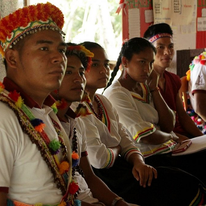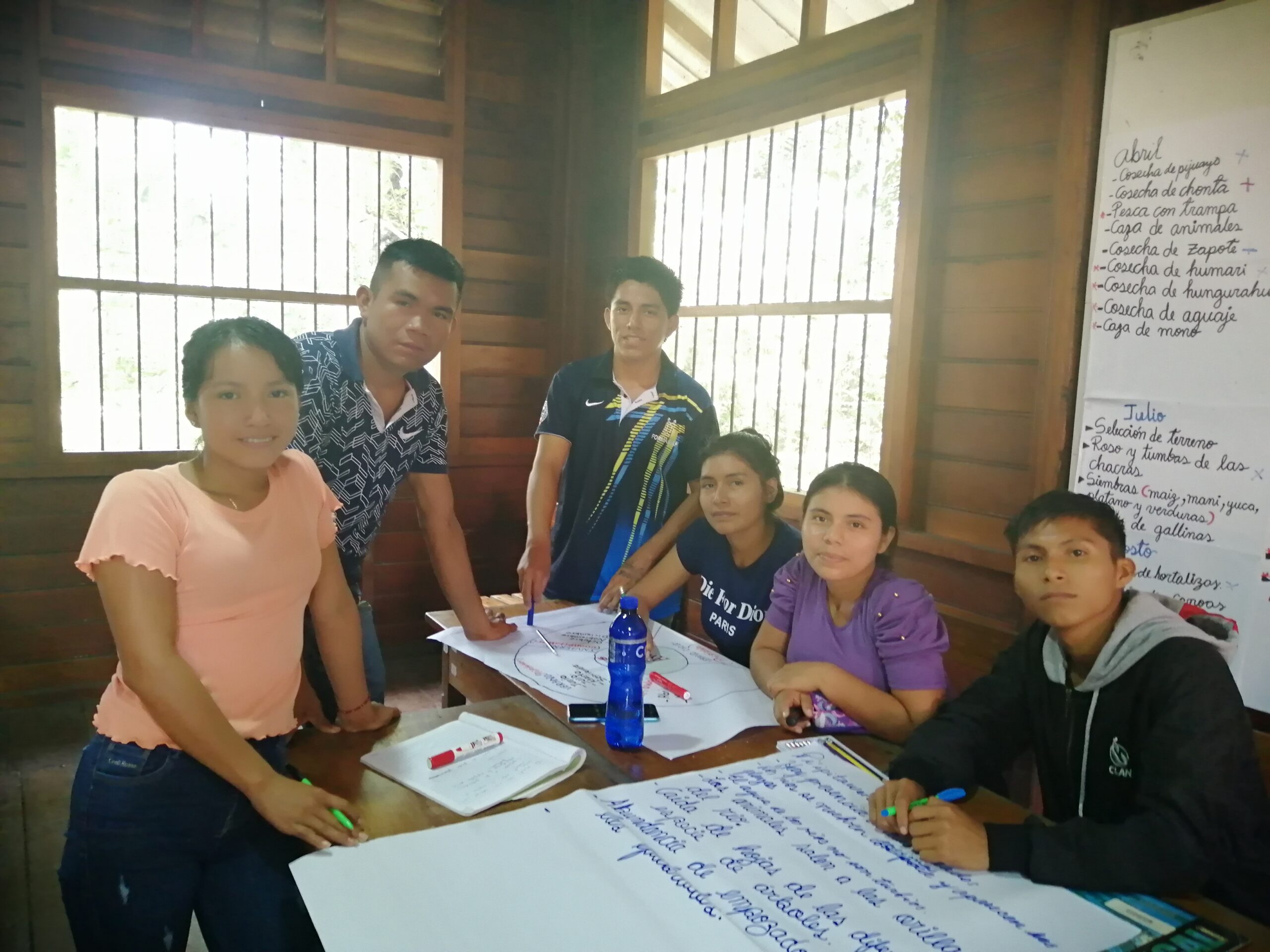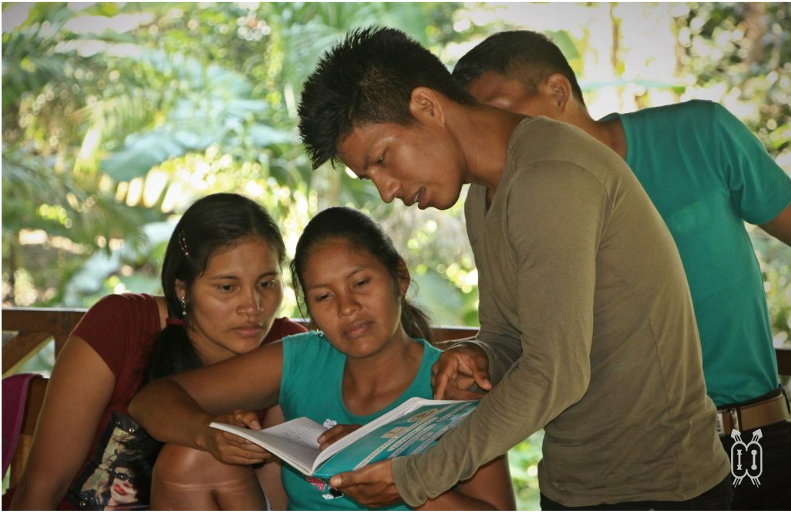The project focuses on developing intercultural social and environmental education for forest regeneration and sustainable living in the Peruvian Amazon for the Kichwa, Kukama and Shawi indigenous peoples.
The Amazonian indigenous peoples of Peru and other countries in the Amazon Basin have been invisible and ignored in national society for centuries. At the same time, their fundamental rights have been systematically violated by the colonization and occupation of the Amazon.
The appropriation of indigenous territories by the state and powerful individuals and corporations, overexploitation of natural resources, oil pollution, regressive social and educational policies, and the spread of urban and consumerist cultural models are dynamics that jeopardize indigenous cultures, identities and ways of life.
Faced with this situation, indigenous peoples, through their organizations, have fought to defend and claim their rights and have gained increasing visibility in recent decades. However, despite progress in the formal recognition of their rights, their main demands remain unfulfilled, and there are still major inequalities between Peru’s urban population and the indigenous peoples of the rural Amazon.
Amazonian indigenous peoples are key players in the future of the Amazon rainforest. In Peru, the main source of greenhouse gases is deforestation, which is primarily due to the expansion of agricultural land. It is therefore of particular relevance in the fight against climate change to empower Amazonian indigenous peoples to defend their territories and develop productive activities that are alternatives to deforestation-for-agriculture.
In this context, the role of education is fundamental and can contribute to increasing indigenous peoples’ public participation, organization and their ability to manage social, economic and cultural change from a critical intercultural attitude, which at the same time strengthens the cultural identity of Amazonian peoples, based on their ancestral connection with nature and territory.
The project unfolds through three components by:
- Improve the relevance of education in local communities by increasing the participation of community actors and indigenous organizations in the design of education management tools adapted to their socio-environmental reality and by promoting the adoption of these tools by teachers and education authorities.
- Strengthening the IBE system for training indigenous teachers with an approach that includes not only pedagogical, cultural and linguistic aspects, but also instruments for critical intercultural analysis, defense of collective rights and the commitment of IBE teachers in the social and environmental field.
- Increase the socio-environmental action of educational centers in indigenous communities by creating a network for exchange and capacity building for teachers and centers to promote environmental initiatives with cultural and social relevance.
Read the full project document here – in English.



